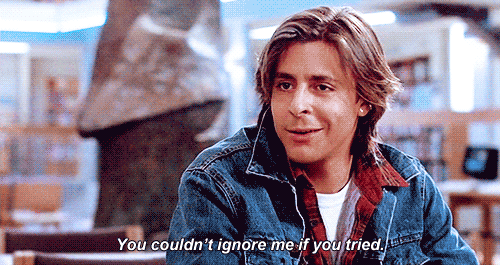Anxiety disorders are very common. The National Institute of Mental Health estimates 18 percent of the adult population experiences an anxiety disorder every year. Approximately 9 percent of adults experience a phobia of some kind.
Whether you're terrified of shaking hands because you're afraid of germs, or the thought of public speaking makes you weak in the knees, it's possible to overcome your fear once and for all. If your anxiety is on the mild end of the spectrum -- perhaps you take the stairs because you're terrified of elevators -- you may be able to conquer your fear without the help of a professional.
Face Your Fear Systematically
Countless research studies have shown exposure therapy is an effective way to treat anxiety disorders ranging from post-traumatic stress disorder to obsessive compulsive disorder. In order for it to be effective however, the exposure should be applied in an incremental manner.
The key to overcoming a debilitating fear is to start by doing something that is only slightly anxiety-provoking. On a scale of 1 to 10, with 1 meaning no anxiety and 10 being equal to sheer terror, look for something that would raise your anxiety to level 4. Then, keep doing that activity until your anxiety decreases.
If you suffered from arachnophobia -- the fear of spiders -- you might start by looking at pictures of spiders. Eventually, your anxiety would dissipate and you could move onto the next step--perhaps watching a video of a spider. Eventually, you could sit in the same room with a spider who is safely placed in jar with a secure lid.
The intention of exposure therapy is to keep working slowly and steadily until you reach your ultimate goal. For someone with a fear of public speaking, the ultimate goal might be to offer one comment each week during a meeting. For someone else, the ultimate goal might be to give a presentation in front of an audience of thousands. But either way, it's important to define what success looks like to you.
Practice Imaginal Exposure When Necessary
Sometimes it's impossible -- or at least a lot more complicated -- to use in vivo therapy. If you're afraid of flying in an airplane for example, it's unlikely that a commercial airline is going to let you practice sitting on a plane for hours as you try to desensitize yourself to your fears.
In cases where real-life desensitization isn't practical, imaginal exposure can be used. Visualizing yourself being exposed to whatever it is that terrifies you can produce a spike in your anxiety. With consistent practice, visualization can desensitize you and make it easier to face your fear in real-life.
Seek Professional Help
Unfortunately, many people suffering from serious anxiety disorders don't seek treatment. As a result, they miss opportunities to advance their careers, or their social lives suffer. If your anxiety interferes with your daily life, don't hesitate to seek professional help.
Anxiety is usually very treatable. Therapists who specialize in treating anxiety disorders often have access to a variety of specialized techniques, ranging from biofeedback to virtual reality exposure therapy. In some cases, medication can also be used to help alleviate symptoms.
Imagine how productive could you be if you conquered your fears. When you're no longer plagued by worrisome thoughts, and you don't need to waste time and energy trying to avoid the things that make you anxious, you can invest your resources into reaching your greatest potential.
Amy Morin is a psychotherapist, keynote speaker, and the author of 13 Things Mentally Strong People Don't Do, a best-selling book that is being published in more than 20 languages.
-- This feed and its contents are the property of The Huffington Post, and use is subject to our terms. It may be used for personal consumption, but may not be distributed on a website.
from Healthy Living - The Huffington Post http://www.huffingtonpost.com/amy-morin/fear_b_7620256.html
via Sol Danmeri
